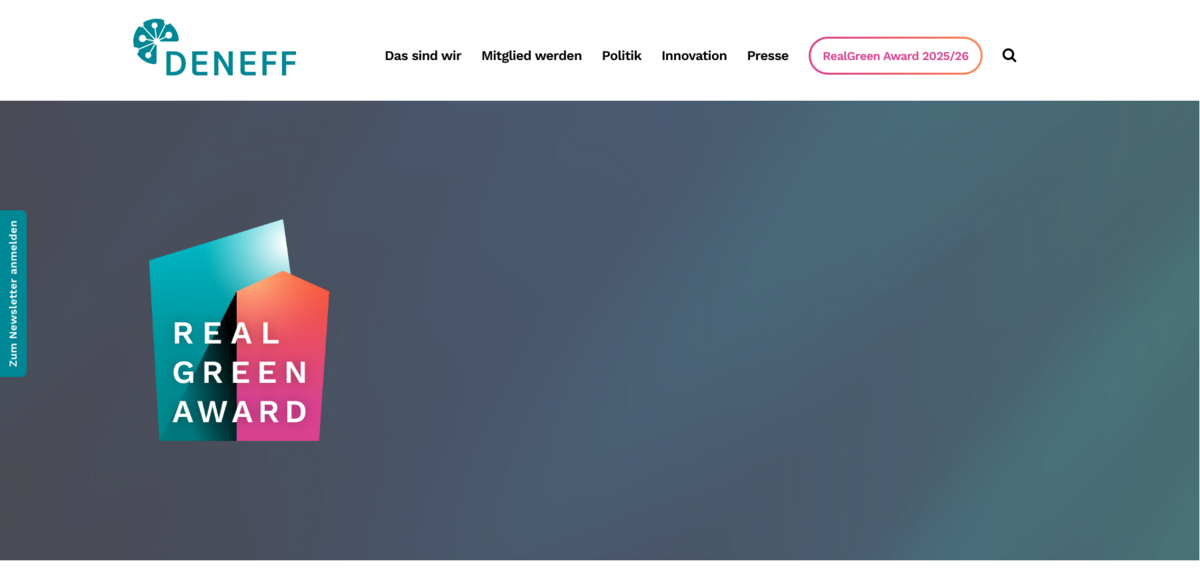What is DENEFF?
DENEFF – Deutsche Unternehmensinitiative Energieeffizienz e.V. – is a powerhouse uniting frontrunner companies in the energy efficiency arena. Their mission? To collectively push for effective and ambitious energy efficiency regulations in Germany. It’s not just about policies; it’s about creating great networking opportunities and ramping up political activities, especially focusing on energy efficiency in buildings and industrial processes. Simply put, DENEFF is where innovation meets influence, driving Germany toward a smarter, greener future.
Main Benefits of Energy Efficiency According to DENEFF
Energy efficiency isn’t just a buzzword for climate protection – it’s a real economic turbocharger. Here’s what DENEFF highlights:
- Germany missed the EU Energy Efficiency Directive deadline by October 11, 2025, risking billions in fines and economic losses.
- Energy efficiency strengthens competitiveness, creates jobs, and boosts resilience against energy imports.
- Building renovations could increase GDP by up to 3.4%, preventing stagnation and job losses.
- The clean industrial heat market is booming, offering huge potential for employment, exports, and climate protection.
- Reforming electricity tax with a dual strategy can prevent subsidy spirals and reduce system costs.
Germany’s Energy Efficiency Law: More Than Meets the Eye
The upcoming amendment to the Energy Efficiency Act (EnEfG) is a game changer. DENEFF points out that energy efficiency goes beyond climate goals – it’s about economic strength and independence. The law’s successes and potentials, as well as the supposed over-fulfillment of EU law, have been neatly summarized in a recent policy brief. It’s clear: energy efficiency is a cornerstone for Germany’s future, but it needs the right legal backing to unlock its full power.
Monitoring Energy Efficiency: A Black Box?
DENEFF welcomes the government’s new monitoring report on electricity demand but isn’t shy about its critique. The report recognizes energy efficiency as a key factor in energy transition and cost-effectiveness but treats it like an unknown quantity. This “black box” approach misses the mark, as energy efficiency should be front and center in shaping policies and strategies. Without clear insights, the potential to optimize energy use and reduce costs remains untapped.
RealGreen Award 2026: Spotlight on Climate Protection in Real Estate
Starting August 1, 2025, DENEFF kicks off the application phase for the RealGreen Award 2026. This award celebrates the best climate protection projects in the real estate sector across the DACH region. Whether it’s innovative portfolio strategies, smart optimizations, or full renovations, the goal is to showcase the path to a climate-neutral building stock. It’s a call to action for everyone involved in real estate to step up and lead the way.
Project Impact: Linking to Sustainable Development Goals (SDGs)
- SDG 7: Affordable and Clean Energy – promoting energy efficiency and clean industrial heat.
- SDG 8: Decent Work and Economic Growth – creating jobs and boosting economic resilience.
- SDG 9: Industry, Innovation, and Infrastructure – driving innovation in energy-efficient technologies.
- SDG 11: Sustainable Cities and Communities – advancing climate-neutral buildings and urban sustainability.
- SDG 13: Climate Action – reducing CO₂ emissions and supporting the energy transition.
Looking Ahead: Investment and Policy Priorities for 2026
As Germany prepares its federal budget for 2026, DENEFF stresses the need for strong investment incentives in energy efficiency. The Climate and Transformation Fund’s planned expenditures are actually decreasing, especially in the building sector – a worrying trend given the sector’s huge growth potential. Reliable funding and clear policies are essential to keep the momentum going, ensuring economic growth, supply security, and climate protection all move forward hand in hand.


















